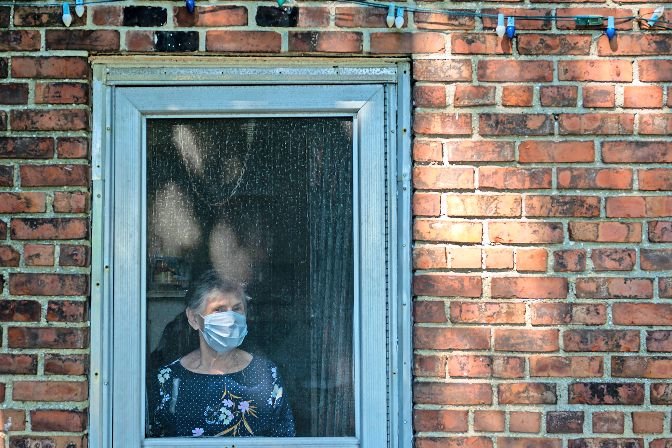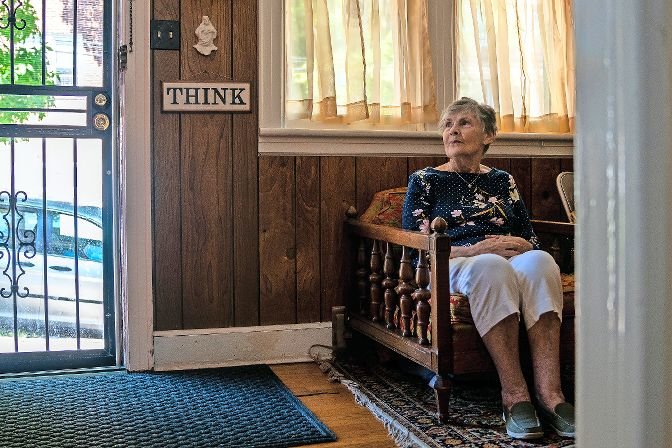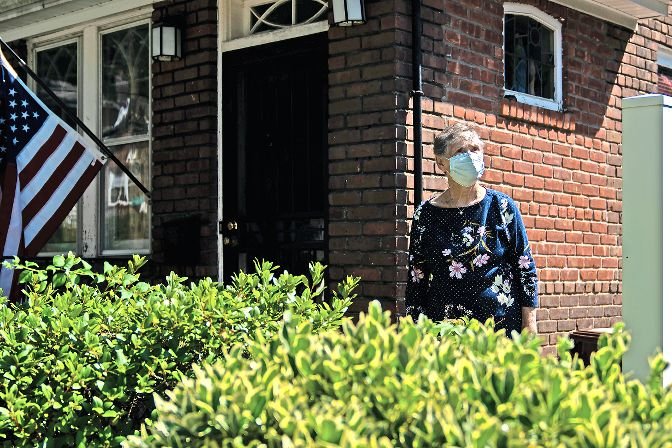Elderly: Silent victims of outages
Many times, power outages start off as minor inconveniences. No electricity or internet access can be difficult and annoying, but often, after a few hours — maybe a day or two at most — the lights will flicker back on.
That wasn’t the case for many when Tropical Storm Isaias hit Aug. 4. In fact, Joan Kenny lost power at her Sylvan Avenue home for eight days. She didn’t have television, internet or home phone access for an additional two. And the cherry on top? She’s 87.
Power outages can be frustrating regardless of age. But especially for elderly people, losing power can be dangerous, even more so when the outages extend beyond a few days.
Patricia Sweeney, the education director at RiverSpring Health Plans that oversees care for elderly in the community, says while many mobility and safety devices for the elderly use battery packs and therefore wouldn’t be affected by a power outage, that doesn’t mean it’s all smooth sailing.
“We usually … make phone calls to all members prior to the storm,” Sweeney said. “Do they have enough water? Do they have flashlights? (Have they) charged their phones before the storm comes? And (we) just prepare for it.”
Sweeney’s main concern for aging people’s safety during a power outage is lighting. Once the sun sets during a power outage, houses go completely dark. And if there are no battery-powered lights in the house, it can turn even a late-night trip to the restroom into potential trouble.
“They have to go and find a flashlight and carry the flashlight with them,” Sweeney said. “If they have an ambulatory device, (like) a cane … or a walker — worse than that — how are they navigating the flashlight and the walker?”
Refrigeration also is an issue, especially for anyone who just went grocery shopping. But many elderly people take medication, and some of those medications — like insulin — need to be refrigerated.
During the eight days she had no power, Joan relied on help from two of her children, Kevin Kenny and Helen Kenny Burrows, as well as aide Vivienne Ford. Joan’s son spent much of his time trying to get updates from Con Edison — attempts that were mostly in vain.
“We had to keep running out and charging a cell phone to make sure we had a phone in case, God forbid, there was an emergency,” Kevin said. “Plus, (with) all the trees that were down, what kind of vehicles were even getting through? Sylvan was blocked across the whole top.”
This wasn’t the first time Kevin’s mother lost power for an extended period of time. She lost power for nine days during a winter storm two years ago. And power outages in different seasons present unique challenges and circumstances.
For a summer storm, daylight hours are longer, so the need for lighting is not as pressing as it would be during a winter outage. But in the few days following Isaias, a heat wave hit the area. Temperatures rose above 90 degrees, making conditions unbearable for people with no power, no fans, no air-conditioning.
“Ninety-something degrees (and) no electricity … is not good,” Kenny said. “There’s two ladies up the street, one has health issues. They made a point of getting her online Tuesday, before us, but that was eight days in.”
Even when repairs began, it wasn’t without difficulty. In the early hours of Monday morning, the utility pole on nearby West 255th Street was removed. Joan’s daughter Helen wasn’t complaining because it was one step closer to finally having power. But the noise and bright lights were a bit much for the middle of the night.
“That was a little unnerving for an 87-year-old,” Helen said. “If the constant hum of generators wasn’t enough, suddenly, we had power saws going at it.”
Many local elected officials voiced their displeasure with how ConEd handled the outages, especially as some of them dragged on for a week or more. State Sen. Alessandra Biaggi was particularly upset by the company’s attitude.
“What it feels like from Con Edison is a real flippant attitude toward customers,” she said. “Many constituents have told me that when they called them, they basically were blown off. That is not acceptable.”
Biaggi noted the social media outcry from many of her constituents who were without power for days. While she realizes posting on social media is an important first step in getting power outage problems addressed, backing it up with legislation and action ensures a longer-term, more effective solution. And that’s exactly what she hopes to do.
“When people are out of power for seven days, eight days, nine days — one day is too much,” the senator said. “One hour is too much, especially for those who rely on it for life-saving support.”












